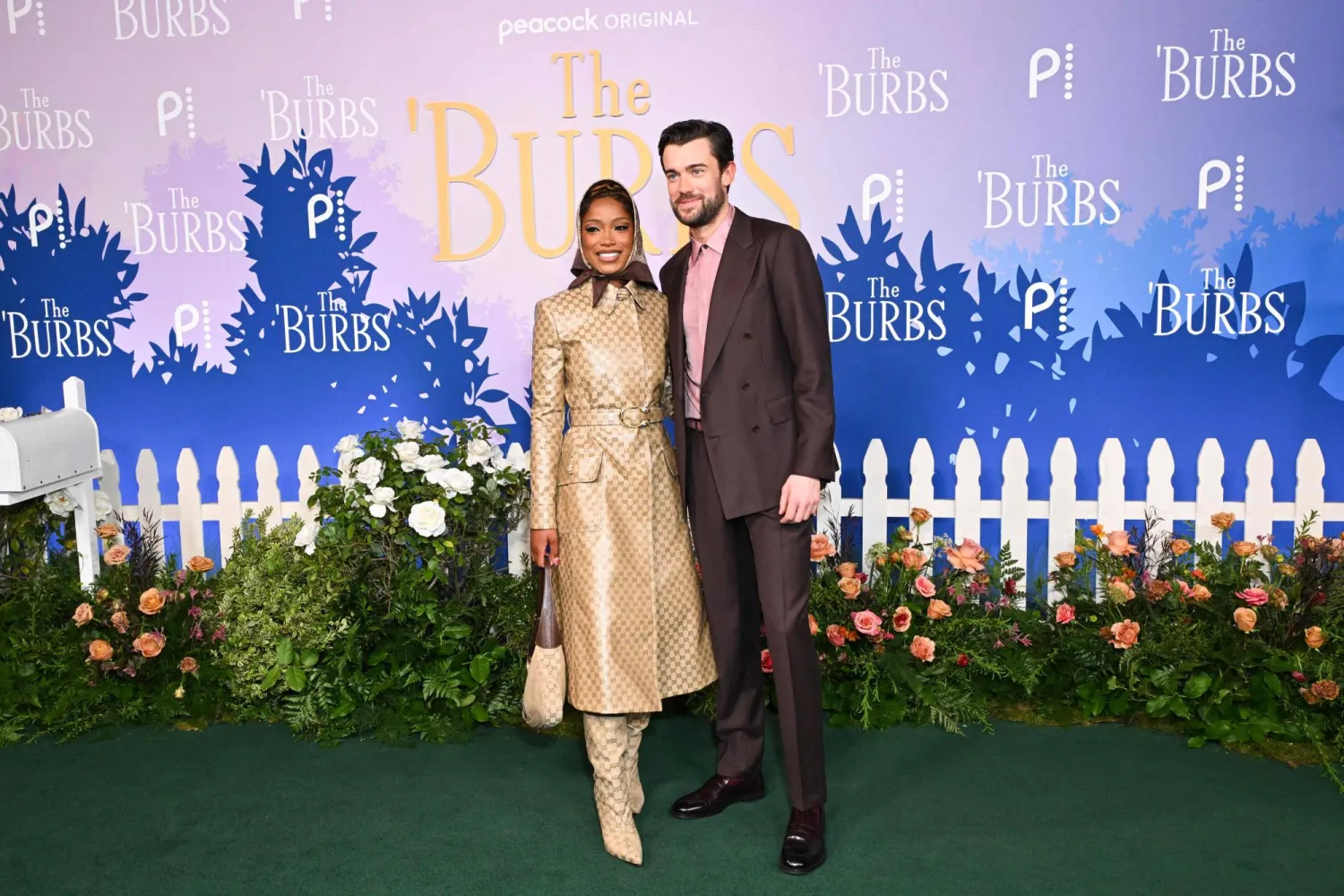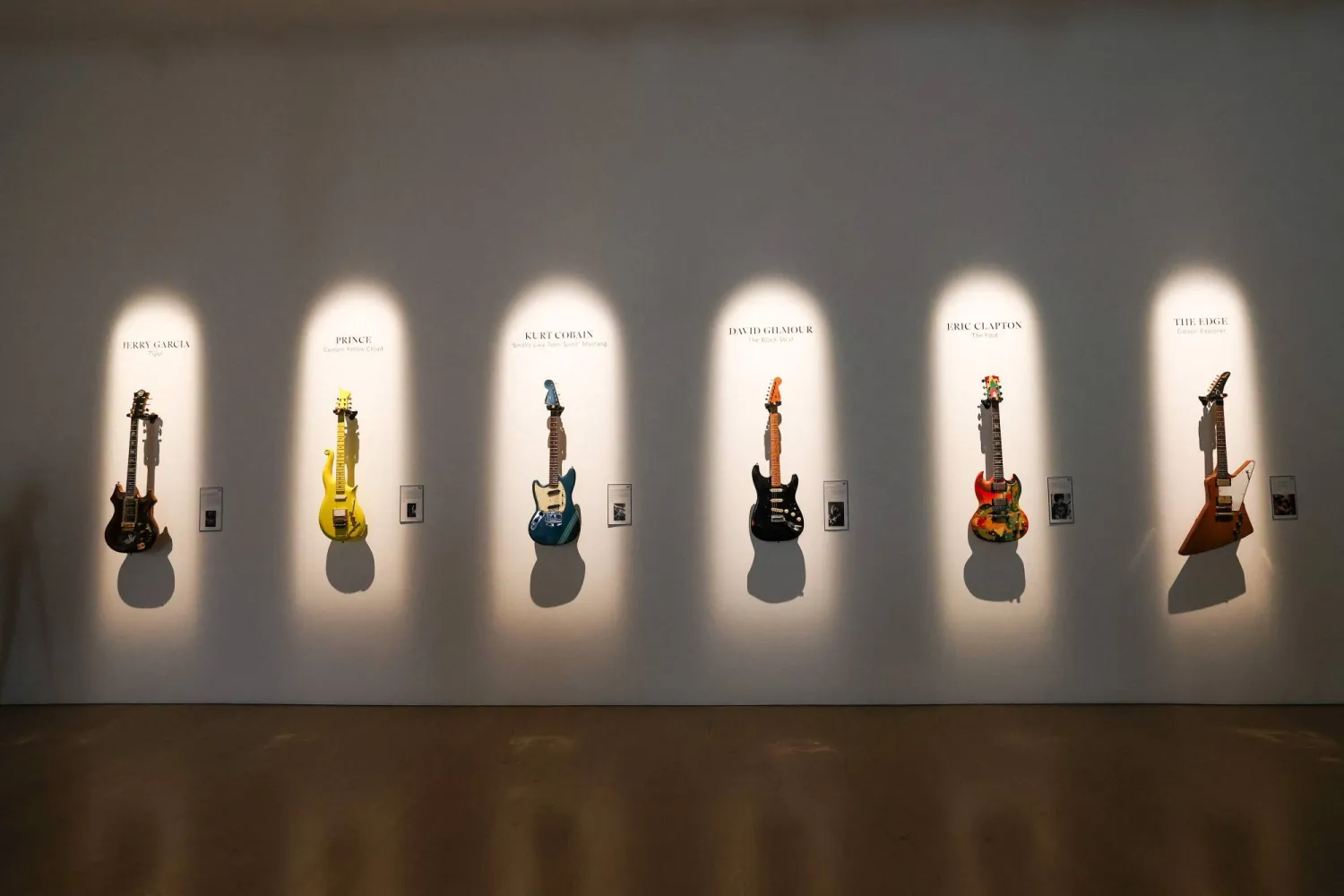In reimagining 40 of their best-known songs, U2 recognized that many fans would experience them through earphones connected to a device in their pockets — rather than being belted out onstage.
That was one thought behind "Songs of Surrender," coming out this week. The four men of U2, now either 61 or 62 years old, revisit material written in some cases when they were little more than kids out of Dublin.
Particularly in those days, U2 songs were written primarily with concerts in mind. The Edge told The Associated Press in an interview that U2 wanted to catch the attention of people seeing the band for the first time, perhaps in a festival or as an opening act.
"There's a sort of gladiatorial aspect to live performances when you're in that situation," he said. "The material has got to be pretty bold and even strident at times. With this reimagining, we thought it would be fun to see intimacy as a new approach, that intimacy would be the new punk rock, as it were."
The Edge was the driving force behind "Songs of Surrender," using pandemic down time to record much of the music at home.
Given that his electric guitar and Bono's voice are the musical signature of U2, there's a certain irony in the absence of that guitar being the most immediately noticeable feature of the new versions. He sticks primarily to keyboards, acoustic guitar and dulcimer.
The process began without a roadmap or commitment to see it through if it wasn't working.
"As we got into it and got into a groove, we really started to enjoy what was happening," he said. "There was a lot of freedom in the process, it was joyful and fun to take these songs and sort of reimagine them and I think that comes across. It doesn't sound like there was a lot of hard work involved because it wasn't."
Much of the intimacy comes through Bono's voice. There's no need to shout, so he sometimes uses lower registers or slips into falsetto.
Lyrics are often rewritten, sometimes extensively in even a recent song like "The Miracle of Joey Ramone." Cellos replace the driving guitar of "Vertigo." Keyboards give "Where the Streets Have No Name" an ambient sound. "Two Hearts Beat as One," the original a high-octane rock dance song, now has a slinkier, sexy vibe and is one of four songs where The Edge takes lead vocal.
The band is fairly democratic in taking songs from throughout its catalog, although 1981's "October" album and 2009's "No Line on the Horizon" are not represented. "New Year's Day," "Angel of Harlem" and "Even Better Than the Real Thing" are among the songs left alone.
"We’re one of the only acts that has this body of work where a project like this would be possible, with the distance of time and experience where it would be interesting to revisit early songs," The Edge said.
Throughout music history, bands have occasionally re-recorded material for contractual reasons. Taylor Swift is the most famous example, putting out new versions of her older songs in order to control their use. Squeeze's "Spot the Difference" makes sport of how they tried to make new recordings indistinguishable from the originals.
Live recordings and archive-cleaning projects like Bob Dylan's "bootleg" series gives fans the chance to hear familiar songs differently.
Many older artists don't see the point of making new music, since there's little opportunity to be heard and fans are partial to the familiar stuff, anyway, said Anthony DeCurtis, Rolling Stone contributing editor.
"Revisiting your body of work in a creative way is a means of sustaining interest in your career," DeCurtis said. "Older fans might not be interested in another collection of your hits, but reworking them in a meaningful way could prove enticing. Younger fans don't have the same investment in your classics, so these new versions offer a route into your catalog."
The Edge encourages fans to give the new versions a try, suggesting they may even grow to prefer some of them.
"I don't think there's a competition between these and the original versions," he said. "It's more of an additive thing than a substitution. If you like the new arrangements, great. If you prefer the originals, keep listening.
"It's no problem either way," he said. "They're both valid."
The Edge said he's working on new music for U2, "and we've got some great stuff in the pipeline."
The quartet that met in drummer Larry Mullen Jr.'s kitchen when they answered an ad placed on a high school bulletin board is a remarkable story in longevity. A passage toward the end of Bono's book "Surrender," where he talked about looking around onstage at the end of their most recent tour in 2019 and wondering if it was the end, raised natural questions about how long U2 would continue.
"There are many reasons why U2 has stayed together for so long, but one of the main reasons is that it works so well for us as individuals," The Edge said. "I think we all shine the brightest as part of this collective. I certainly would not like to hang up the guitar."
This year will provide a test for a band that can count on one hand the number of times it has performed without all four members. U2 has committed to a run of shows in Las Vegas without Mullen, who is recuperating from surgery.
Would U2 continue if one of the original quartet decides it's time to hang it up?
"I wouldn't rule out the possibility that we could go forward with different members," The Edge said. "But also, equally, I could imagine us deciding not to. It would be a big challenge. But I think at the time we would know what felt right."









